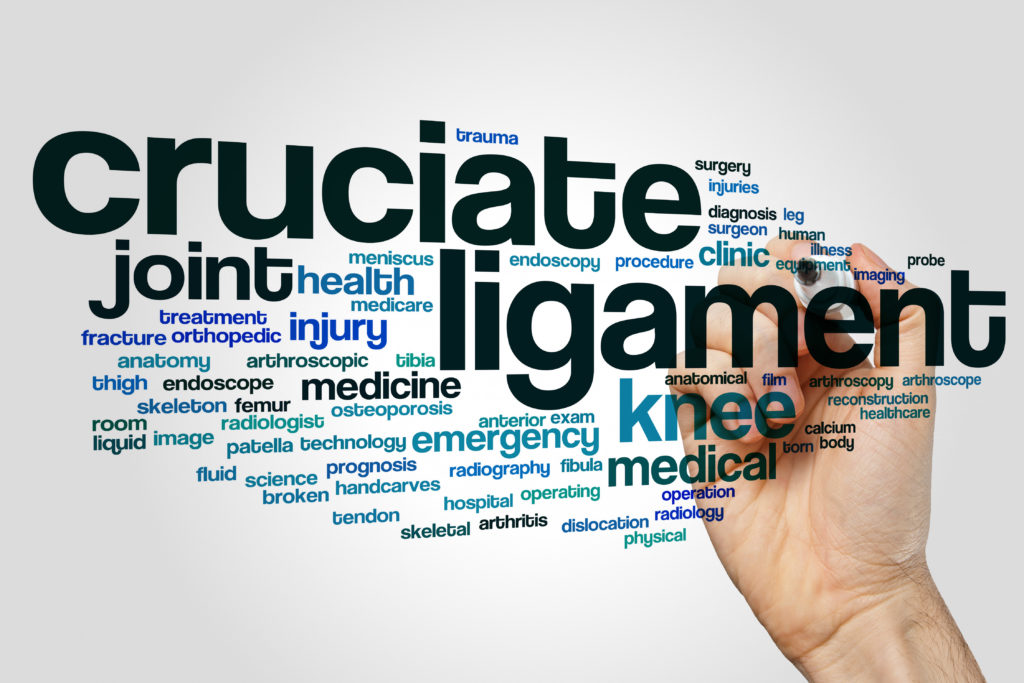What is the ACL?
The ACL is the anterior cruciate ligament of the knee. It is one of the 4 major ligaments which provide structural support to the knee. Damage to the ACL is a major injury and it may take up to 18 months to recover fully back to your previous activity level.
How do I damage my ACL?
Damage can largely occur in two ways – contact or non-contact injuries.
With contact injuries there is some sort of blow to the knee which caused it to twist and collapse e.g. a tackle when there is force against the thigh or knee with the foot caught / unable to move freely.
With non-contact injuries it is usually a landing from a jump or side step that is uncontrolled. This causes the knee to twist and collapse due to it being unable to control the load. The good thing about non-contact injuries is they are largely preventable. The bad thing is they are becoming increasingly more common and are being seen at much younger ages.
What is the management?
Management can either be conservatively or with surgery. Both however follow the same principals. The aims are to reduce the swelling, regain the movement and strength, then gradually increase function ready for a return to sport or general activity.
How do I decide which management style is best for me?
Research tells us that in the long term the management direction doesn’t matter. It depends largely on whether you are a “coper” or not. Without an ACL your knee becomes unstable and can feel as if it is going to give out especially on slopes and when twisting. What surgery does is restores some of this stability. However, in a number of people they can regain this stability through exercising and strengthening their knee. These people are called “copers” as they have taught their body to cope without the ligament present. We now also know through research that if you decide to try conservatively but decide later to have surgery your outcome will be just as good in the long term.
How do I know when I am ready to return to sport?
Previously we use to work on timeframes, such that after 9 months you were considered ready. This has recently changed to a that of a testing based approach. Currently there are a number of tests or tasks you have to pass to progress your rehab to the next level. Before you return to sport there are also some tests to pass. We know if you pass these tests your chance of a reoccurrence decreases considerably. It is also important that you feel ready for a return. Both the physical and the psychological side of things needs to be right for a successful return.
Preventions sounds a better option. What can I do?
There are many simple programs that can be used to reduce your risk of an ACL injury. Most of these can be incorporated into the warm up that you do before your sport and training sessions anyway, so really don’t take any extra time. Examples of this are the FIFA11+ program for soccer or the Netball smart program.
Does Vector Health and Performance help with ACL injuries or injury prevention?
If you would like to know more about how to treat or how to prevent ACL injuries, please email hamish@vectorhealth.stagingarea.net or glenn@vectorhealth.stagingarea.net or call 4927 8190 to book a time to come in and have a talk about getting a plan together for you.
If you are a sporting club or school looking for Professional Development opportunities for coaches, Hamish or Glenn or both of us do this. We can either do it at your venue or you can come to us.

